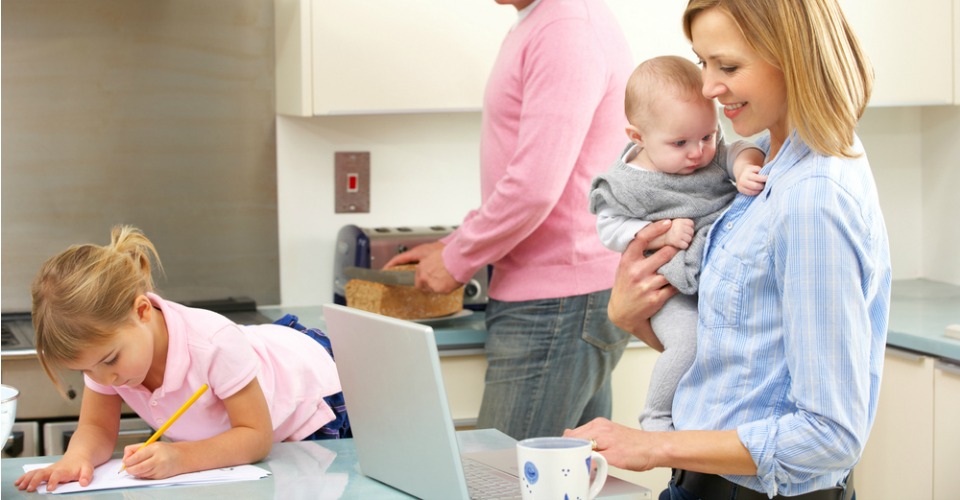Being A Working Mum Does Not Negatively Affect Your Children
- Parents Only

By: Alex Harmon, ellaslist
Are you a busy working mum feeling guilty about dropping your kids at daycare/the nanny/the grandparents each day as you rush off to work? Well, you shouldn’t feel bad! Going back to work early is not going to hurt your child’s development, according to new research conducted in Australia, the US and the UK by the University of Cambridge and Princeton University.
Researchers found there was little cognitive or behavioural difference in children beginning school whose mothers had returned to work, and those whose mums who stayed home during the two years after childbirth.
We Welcome The News
With the cost of childcare rising, which only puts more salt in the wound, it was great to read this news, especially as it’s virtually impossible to raise children on one wage and live in Sydney. Not to mention the single mothers who often don’t have much choice. It’s music to working mum’s ears that going to work actually benefits children. Not only that but it creates great role models for your children to look up to.
Child psychologist Dr David Carey agrees. “Language stimulation, play stimulation and active learning environments with a group of children are all the factors which can improve a child’s rate of learning and development. These things can be supplied at home of course but it is often the case that the stay-at-home parent is isolated, tired and stressed, making it difficult to provide what the early years setting provides.”

How Australia Compares
Going back to work early was common amongst mothers in all three countries, the study found. Mothers from Australia and the UK were slower to return (60 per cent were back to work by the child’s second birthday) than American mothers, perhaps because of more generous parental leave schemes. The US has no government paid maternity leave, and limited unpaid leave for 12 weeks for eligible working mothers.
However, if you are a stay at home mum, you should not fret. Development usually balances out when children start school.
“Most children catch up when entering primary school,” says Dr Carey. “Those with a huge head-start are more advanced but, in the end, social and emotional development evens out for the average child.
And if you are a stay at home mum and you’re now feeling guilty by this news (not our intention!) there is plenty you can do to ensure your kids don’t miss out. A few simple things you can do for your children is to give them chances to interact with other children, encourage free play, limit screen time, to talk with them, bring in the extended family and simply enjoy their unusual and inquisitive view of the world.
More Stuff For Mums
How To Find Flexible Work As A Mum
Libby Trickett Gets Real About Motherhood
Reviews


